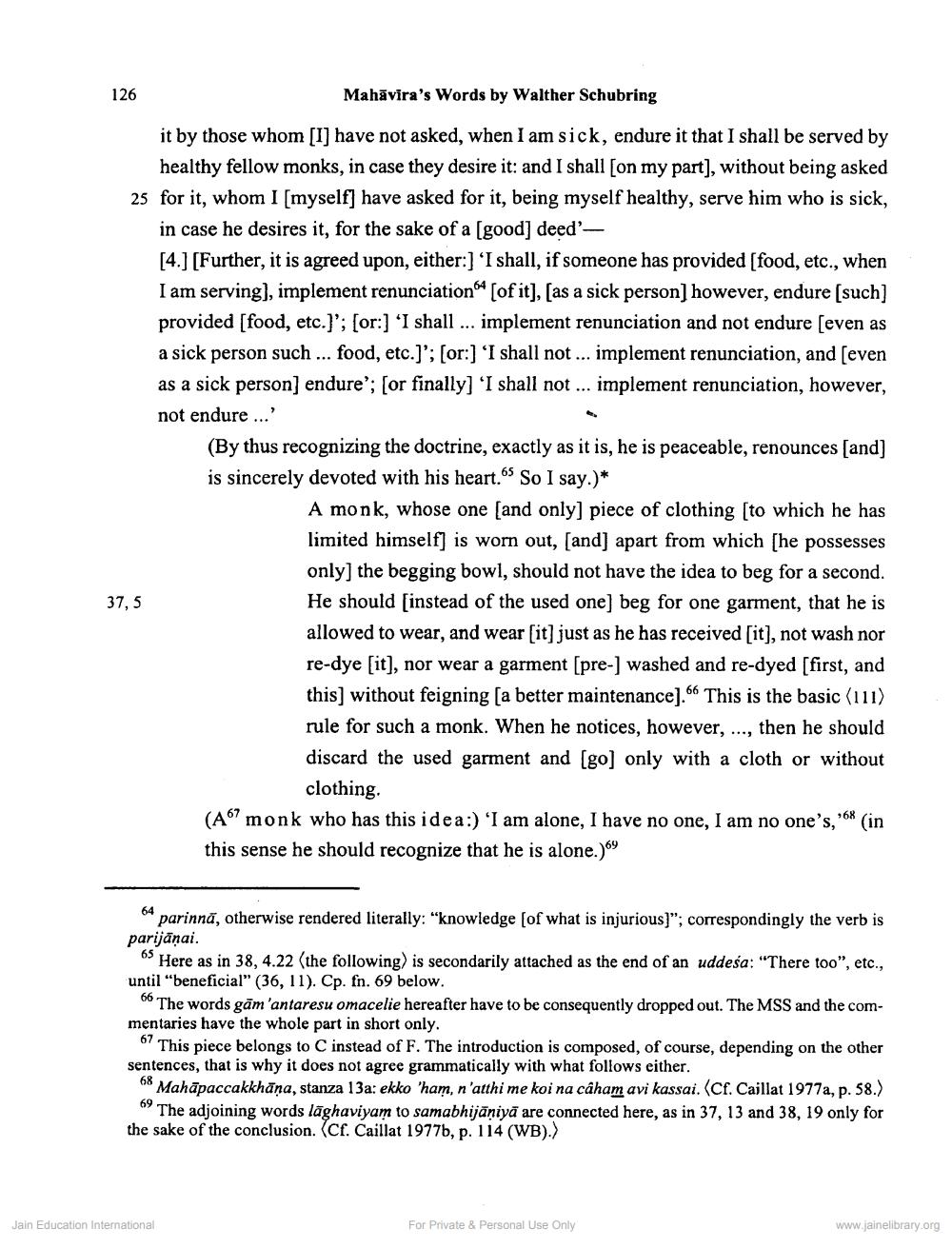________________
126
Mahavira's Words by Walther Schubring
it by those whom [I] have not asked, when I am sick, endure it that I shall be served by healthy fellow monks, in case they desire it: and I shall [on my part], without being asked 25 for it, whom I [myself] have asked for it, being myself healthy, serve him who is sick, in case he desires it, for the sake of a [good] deed'
[4.] [Further, it is agreed upon, either:] 'I shall, if someone has provided [food, etc., when I am serving), implement renunciation" [of it], [as a sick person] however, endure [such] provided [food, etc.]'; [or:] 'I shall ... implement renunciation and not endure [even as a sick person such... food, etc.]'; [or:] 'I shall not... implement renunciation, and [even as a sick person] endure'; [or finally] 'I shall not... implement renunciation, however, not endure ...'
37,5
(By thus recognizing the doctrine, exactly as it is, he is peaceable, renounces [and] is sincerely devoted with his heart." So I say.)*
A monk, whose one [and only] piece of clothing [to which he has limited himself] is worn out, [and] apart from which [he possesses only] the begging bowl, should not have the idea to beg for a second. He should [instead of the used one] beg for one garment, that he is allowed to wear, and wear [it] just as he has received [it], not wash nor re-dye [it], nor wear a garment [pre-] washed and re-dyed [first, and this] without feigning [a better maintenance]." This is the basic (111) rule for such a monk. When he notices, however, ..., then he should discard the used garment and [go] only with a cloth or without clothing.
(A67 monk who has this idea:) 'I am alone, I have no one, I am no one's,'6 (in this sense he should recognize that he is alone.)"
64 parinnä, otherwise rendered literally: "knowledge [of what is injurious]"; correspondingly the verb is parijāṇai.
65 Here as in 38, 4.22 (the following) is secondarily attached as the end of an uddeśa: "There too", etc., until "beneficial" (36, 11). Cp. fn. 69 below.
66 The words gām 'antaresu omacelie hereafter have to be consequently dropped out. The MSS and the commentaries have the whole part in short only.
67
Jain Education International
This piece belongs to C instead of F. The introduction is composed, of course, depending on the other sentences, that is why it does not agree grammatically with what follows either.
68 Mahāpaccakkhāṇa, stanza 13a: ekko 'ham, n'atthi me koi na câham avi kassai. (Cf. Caillat 1977a, p. 58.)
69
The adjoining words laghaviyam to samabhijāṇiyā are connected here, as in 37, 13 and 38, 19 only for the sake of the conclusion. (Cf. Caillat 1977b, p. 114 (WB).)
For Private & Personal Use Only
www.jainelibrary.org




